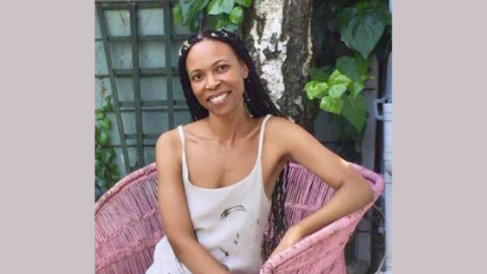Field Reflections by Tumi Mampane

Field Reflections by Tumi Mampane
When I began my work as a research assistant for the GendV project I had no illusions about it being easy, not even as a person who is deeply embedded in Alexandra Township—its life, culture, and people. It can never be easy to tackle the issue of violence. So, I do this work as a matter of necessity. And the women I speak to agree to do so for the same reason. We all, the participants, myself and the GendV team, come together to understand the roots of violence and how it is enacted and felt. I say this about my participants because they have, during our interviews, shown a great sense of reflection—what in academia we would call theorising.
One of the women I spoke to gave me historical reflections of violence enacted against women in Alex. She described it as morphing as it changes face. Let me explain. While Black people, especially those of us who have grown up in townships (rightfully) resist narratives that box us in as hopelessly marred by violence, substance abuse and poverty, we also do not fool ourselves with romantic narratives of perfect neighbourly lives in spaces that were built by the apartheid government to keep us inline or kill us. We recognise, as is explained to me as a reminder by Sindi[1], that Alexandra has not always been kind to women and girls.
Sindi and I spoke about the violence in the township during the nineties. The verbal violence of being cat-called and promptly sworn at and insulted if one fails to respond with a smile. We spoke about how this escalated to the humiliation of being doused in water after walking out of a hair salon: how that was enacted as a disciplinary measure against those women and girls who thought themselves “better” than their fellow Alexandra residents. Women remember being pulled forcefully by the arms and forced into embraces by men who thought their romantic and sexual interest was all that mattered. Others recall the kidnapping and subsequent gang-rapes of their friends and loved ones by what was called “jack rolling” at the time. It is no wonder then that most of the more mature women who participated in these interviews feel safer in the township when they are behind the wheels of their own cars. They feel that mobility grants them the safety that walking, and public transport could never provide. One is more likely, after all, to be forced into an embrace at a taxi rank or submerged in water on the side of the road.
But that same mobility and financial independence that these women celebrate, becomes the source of a new fear. Women in Alexandra fear that men now resent their financial independence. That the jealousy of men brings violence closer to them—the violence now lives in their homes and has become much worse. Where these women first feared what could happen to them on the street, they now fear how their partners could kill them right in their homes. We speak about fear a lot. We also discuss the different ways to deal with this fear, how they can be (even though temporary) a relief to us all. We talk about the raising of our children and how that fear can at times control what we teach these children. Another historic reflection: some women still teach their girl children to dress more conservatively, as their mothers taught them, to avoid sexual violence. And they teach their children to seek as much independence through education as possible. They feel that better than the mobility that they have managed is leaving the township altogether.
It is not my place when I do fieldwork to give advice on whether it is a good or bad idea to leave Alexandra. I can only hope that the findings we come to with my fellow researchers will reveal the similarities and differences in the violence between Alexandra and Sandton. Not as an answer to the “better” space where women and girls are concerned, but as a different way to view and understand these spaces and the people who occupy them. I can say with confidence and with sadness that speaking with the women of Alexandra brings me more questions than answers, that it is not easy. It is not easy to see women flinch, or cry at the memory of losing a loved one or of experiencing violence at the hands of a partner or family member. But I stand firmly in the belief that unravelling these questions and placing the voices that are most affected by them is a political necessity.
[1] All names have been changed to protect the identity of participants
Written by Tumi Mampane
April 6th, 2022
